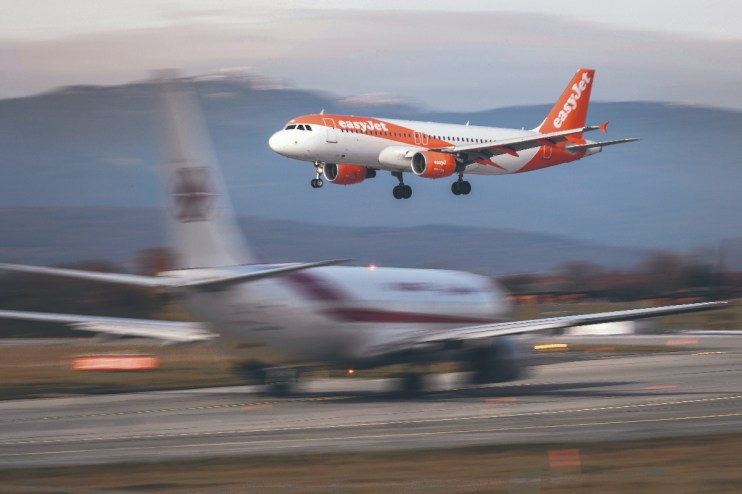Easyjet shares encounter turbulence as chief Lundgren steps down

Shares in Easyjet have run into turbulence today after the company posted its numbers for the first six months of its 2024 fiscal year and announced its CEO would step down next year.
Investors dumped the stock in early deals, sending the shares down by nearly 10 per cent, pushing the airline to the bottom of the FTSE 100.
However, by lunchtime, the stock had recovered most of these losses to trade down around 3.6 per cent.
The turbulence followed the company’s earnings report for the six months to the end of March.
Easyjet reported a drop in losses over the key winter period today as the company gears up for what could be a bumper summer for airlines.
In a trading update for the six months to the end of March, the FTSE 100 company reported a £61m reduction in winter losses.
Along with its results this morning, Easyjet also announced an “orderly succession plan for its Chief Executive, Johan Lundgren.”
The firm said Lundgren will quit in early in 2025 after seven years in the top job.
He will be replaced by Kenton Jarvis, who will continue in his job of CFO during the transition.

Easyjet’s business model effectively packs losses into the first half of the financial year, before reaping profit across the spring and summer travel booms.
The airline’s revenue per seat rose five per cent overall, while its cost per seat declined two per cent.
Profit per seat rose 40 per cent as Easyjet prioritised ancillary revenue.
Easyjet said spending per seat on ancillary revenue grew 16 per cent to £2.18.
Meanwhile, the group’s holidays arm, Easyjet Holidays, reported customer growth of 42 per cent year-on-year.
It also successfully launched new bases in Birmingham and Alicante in the period.
Looking ahead to the rest of the year, Easyjet said it has sold 77 per cent of seats for its fiscal third quarter (1st April to 30th June), and 39 per cent of seats were sold for the fiscal fourth quarter (1st July to 30th September) both figures were up one per cent year-on-year.
Overall, the number of seats the airline has on its network is expected to be up eight per cent year-on-year in the second half, with total capacity of 100m seats.
Easyjet Holidays is expected to deliver over £170m of profit before tax, up 40 per cent compared to last year.
Overall, the company said that it remains on track to hit its medium-term target of more than £1bn in profit before tax.
Commenting on the results, Johan Lundgren, Easyjet’s CEO said: “Easyjet’s targeted growth and focus on productivity has delivered a reduction in winter losses, boosted by our trusted brand and network that we continue to invest in.
“Our two newest bases, Alicante and Birmingham, are achieving passenger numbers well above the network average and we have announced a tenth UK base at London Southend from next March, continuing the growth of our leisure network in the UK where Easyjet holidays plays an increasingly important role,” Lundgren added.
“We are now absolutely focused on another record summer which is expected to deliver strong full year 2024 earnings growth and are on track to achieve our medium term targets.”
Zoe Gillespie, investment manager at RBC Brewin Dolphin, said: “Easyjet continues to reduce losses during the quieter winter period, while summer bookings are strong. Greater airline capacity, increased revenue from ancillary services, and the growth of Easyjet Holidays are adding to the spread of revenue sources and giving customers a better connection to the brand.”
Gillespie added: “Johan Lundgren has navigated a particularly turbulent period for easyJet in the last seven years and his departure will be a loss to the company. But, he leaves the airline in a strong position and there are clear succession plans in place, providing a good deal of stability for Easyjet as it continues on its upward trajectory.”
